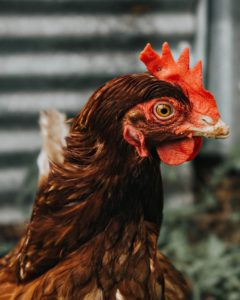by Jenny Rose | Mar 30, 2017 | Emotional Intelligence, Feelings
In the last couple of years, a lid has been gradually slipping off a container in my mind labeled ‘BOREDOM,’ and I suddenly realize the contents of the can are now moving into all the cracks and folds of my memories and experience.
I don’t have much interest in boredom. I’m never bored and I’m greatly irritated by people who are. When I expressed boredom as I child I was either given something “productive” to do or told sometimes everyone has to do things they don’t want to do.
As a parent, when my kids expressed boredom, I gave them a long list of tasks or “productive” things they could do to help me. They usually declined, but they also learned quickly to stop saying they were bored.
I’ve often been told I’m boring.

Photo by Annie Spratt on Unsplash
There. That’s all I have to say about boredom.
Life was much more cut and dried before I became educated in emotional intelligence. Now I’m suspicious of cut and dried, especially if it has to do with feelings, patterns in my life or things that keep showing up. Boredom keeps showing up. People say they’re bored and I feel disgusted. People say they do self-destructive things because they’re bored and that excuse infuriates me. I take the boredom of others personally, as though I’m not entertaining or interesting enough to keep them engaged.
If I’m not interested in boredom, I ask myself, why does it make me so mad, and why does it keep catching my attention?
Why, indeed.
A couple of days ago I decided this week’s post would be about boredom, so I really started to think about it. I tossed around the concept of boredom with my partner. I thought about all the places it’s shown up in past relationships. I sat down and Googled boredom and looked at articles, quotes, memes, images and definitions.
I can’t tell you how often I’ve come to the page, either to write or research about something out there — a behavior or pattern I observe around me in other people — and discovered it’s not out there at all, at least not exclusively. It’s in here.
Remember what I said a minute ago? “I’m never bored.”
I’m suddenly realizing that’s not true. In fact, I suspect I’ve been chronically bored my whole life. The feeling of boredom, along with so many other feelings, simply got denied. It wasn’t until I started living more authentically here in Maine and stopped being bored that I could begin to see the colossal depths of my previous boredom.
Naturally, I’ve felt enraged when others express feeling bored while I can’t.
But why can’t I express it? What’s so shameful about boredom?
Oh, baby.

Photo by Jason Rosewell on Unsplash
First of all, being bored means you’re not working hard enough. You’re not being productive. You’re wasting time. You’re useless! You’re lazy! You’re a quitter! You’re irresponsible! You’re letting others down! You’re not pulling your weight! You’re a burden! You’re a failure! (This eventually trails away into a wild-eyed, gibbering mental shriek.)
When all the arm-waving drooling hysteria stops and I can think rationally again, what I’m left with is BUSY=GOOD and BOREDOM=BAD. This has the look and feel of first-grade logic to me, and I’m skeptical. I’ve spent a lot of my life staying busy in order to please other people and a lot of that busy was dead boring. School, for example. Busy and bored are not opposites. Busy without purpose is a recipe for compulsivity. On the other hand, the condition of being undisturbed and private with a book, paper and writing or coloring pens or even just a window and a cat with nothing in particular to do is a real pleasure.

Photo by Danny Postma on Unsplash
Somehow, somewhere along the way, boredom became the enemy in our culture. It’s a whine, a complaint, a danger and a discomfort to be avoided. It’s a weakness, even a sin (if you think in such terms). Boredom is a condition that must be fixed. Bored children get into trouble. Bored adults are not productive. Boredom is an excuse to use and abuse substance. People eat out of boredom. People have affairs out of boredom. Boredom, in fact, is to blame for a lot of undesirable behavior and choices.
Really? I don’t accept this. I’ve learned feelings — all feelings — can be thought of as value-equal data. We’re human. We have feelings. Some are more uncomfortable than others, but isn’t that largely a product of the thoughts and judgements we attach to them? Feeling a feeling doesn’t mean we have to act it out in ways to hurt others or ourselves. If we make destructive choices, our feelings are not the problem. What we do with our feelings is the problem.
It follows then, if I’m bored and I can call the feeling by name and recognize it, there’s information there for me. What is my boredom telling me? Here are some things I associate with my own boredom:
- I’m not interested.
- I’m not engaged.
- I’m not authentic.
- I don’t feel a connection.
- I can’t make a contribution.
- It’s too easy; I know how to do this; I can do more.
- I don’t understand.
- I’m overstimulated.
- I’m exhausted or ill.
- I’m overwhelmed with some other painful feeling, like fear, rage or grief, I’m refusing to deal with.
- I have a boundary problem; I’m taking on something belonging to someone else.
- I’ve been here and done this — not doing it again!
- My needs are not being met.
- I feel disempowered.
- I’m not in the right place.
- I feel limited.
- I can’t be curious or creative.
- I’m not safe.
This entire list is a map informing me where I’ve been, where I am and where I might go next. The feeling of boredom is the ground I stand on to read the map. My boredom doesn’t need to be fixed. There’s nothing shameful about it. On the contrary, it holds essential information and experience for me. It defines choices and supports power. Busy can’t create this essential space and quiet, but boredom can.
So much for not expressing boredom because it’s bad and busy is good. What else stood in my way all these years?
False Gods.
You see, I’m female. (By which I mean uterus, ovaries and menses.) Good girls, nice girls aren’t bored — ever — by males, including but not limited to male teachers, male family members, male romantic/sexual partners, male classmates and colleagues, and male bosses.
Now, before anyone climbs up on their high horse, understand I don’t hate men. Not at all. I’ve historically gotten along better with men than women, in fact. Also, I know things are different now than they were in the 60s and 70s when I was being socialized — sort of. There’s a lot more awareness and discussion of feminism and sexual politics.
However, a big part of my training had to do with “respect,” (also loyalty, responsibility and duty) and just about the only person not included in those I was taught to “respect” was myself. Respect was demonstrated by things like being silent while the men spoke, obedience, and being properly grateful for and attentive to mansplaining . Respect meant adapting, adjusting, and limiting myself so as not to challenge, threaten or compete with men. My role was to learn to “act like a lady” and be compliant, sweet and attractive.
You might not have noticed, but that training wasn’t notably successful.
Boredom and respect are not a happy team, so of course I kicked boredom to the curb. Respect meant love, validation, tribe, straight A’s, husband, children, a good job and a normal life. Boredom with addiction, violence, abuse, rigid thinking, inability to grow, absent creativity and curiosity, uninspired sex, toddler-level communication skills, power and control games, mind fuckery, omnipresent TV, unending housework and financial grind was absolutely out of the question.
Until now.
As for other people calling me boring, we’ve already covered that in a previous post. It’s a projection. My feeling of boredom is not about others and their boredom is not about me. I’ve been a lot of things in my life, but boring isn’t one of them.
That empty can in my mind labeled ‘BOREDOM’ was filled with something I want and need. Who knew? Going forward, I’m reclaiming my boredom. I’m welcoming it like the wise old friend it is, naming it, honoring it, embracing it, standing hip-deep in it and reading the map of my life to chart a course for what I’d like to do next.
And I will never, ever again try to fix, discourage, stifle, diminish or deny someone else’s boredom. I will instead congratulate them for feeling such a vital, vibrant feeling and ask them my favorite question:
“What would you like to do now?”

Photo by Joshua Rawson-Harris on Unsplash
All content on this site ©2017
Jennifer Rose
except where otherwise noted
by Jenny Rose | Mar 9, 2017 | A Flourishing Woman, Body, Food
This is a third post in a series in which I’ve questioned the relationship between American dietary standards and health and written about my own personal journey with diet. This week I’ll focus on some of the ideology embedded in diet and food production.
In my first post, I briefly mentioned vegan bullying. Because of the way we choose to eat, my partner and I spend some time in digital conversations about food. I’ve been amazed by the hostility and hatefulness directed towards people who choose to produce, harvest and/or eat meat.

Photo by Agence Producteurs Locaux Damien Kühn on Unsplash
All people need to eat in order to live. That’s a given. I believe most individuals want to be able to feed themselves and their families with high-quality, healthy food. Sadly, because we live in a capitalist and consumer culture, this basic need is hugely impacted by financial, political, social and geographical variables. Additionally, diet is inextricably entwined in the religious and spiritual framework of many people.
Just this short list of factors make the basic necessity of putting food in our mouths complicated. Obesity and other eating disorders, as well as food-related diseases and health issues (which may be to say all diseases and health issues) reflect that.
Add to that a small but vocal group of people who take it upon themselves to judge, criticize, bully, shame and threaten others about their diet, and we’ve got a mess.
Now, there are all kinds of stated reasons why some people think they have a right to mandate what and how we all should eat. Some folks claim to be animal rights activists. Some talk about guilt, as in “What do you do about your guilt about eating the flesh of a dead animal?” Others say cows are killing the planet.
The list goes on. You get the idea.
I’m not a science teacher and this blog is not about handing out an academic education, but the cows killing the planet thing belongs under the heading of alternative facts. It simply isn’t true, and a brief survey of science-based permaculture, climate change and basic biologic history demonstrates that. Properly managed, the presence of animals is essential to healing the planet. Believe it or don’t believe it, but for me this is nonsense and I’m not interested in debating it.
The animal rights activism excuse really gets under my skin. First of all, equating eating meat with hating animals is first grade level reasoning. The world is filled with hunters who deeply respect and love the land and the animals they hunt and harvest. They show that respect by protecting the health of wildlife and wild land, doing their best to get a clean and efficient kill shot, using all of the animal they kill and supporting sustainable hunting practices. Of course, there are plenty of the other kind out there, lots of idiot trophy hunters and poachers who need a rack or a pelt in order to feel powerful. I don’t deny it. What I do say is that hunters are like everyone else — some are respectful and see themselves as part of the system we inhabit, and others operate strictly from power-over and see themselves as masters of the universe.

Photo by Greg Ortega on Unsplash
This also holds true for food producers. A small family farm hand raising meat with love, affection, attention, rotational grazing on healthy land and a good natural diet is a beautiful place. These people love their animals and the land. They also slaughter, butcher and eat their animals. They participate in, understand and respect every part of the cycle, from breeding to table.
To equate something like that with the nightmare of some modern mass meat production is simply ridiculous. If you want to see cruelty to animals, all you have to do is whisper “profit” into the ear of a corporation. Big Oil, the cosmetic industry and the fashion industry are just a short list of entities who have done plenty to destroy animals and habitat, and most people don’t care.
Incidentally, I’ve spent much of my life involved with animal rescue. I’m proud to say my mother is one of the most talented people I’ve ever met or heard of with animals and she’s largely given her life to making the world a better place for them, particularly horses and dogs, but by no means exclusively. This has all been volunteer work, done out of respect and love for the life in the world that can’t fight or speak for itself. She doesn’t see herself as better than. She sees herself as part of. The animals honor her with their presence and companionship, not the other way around.
So, yes, I eat meat with great enjoyment, AND yes, I love animals. I’m not limited by an inability to dwell in the sacred and powerful duality of life and death.
Bigger than all of this, however, is the guilt aspect, the real heart of this post. A vegan asks, “What do you do with your guilt about eating dead animals?”
For me, this question is much bigger than an issue of diet. The question reflects just how far we’ve strayed from wisdom, health and sanity in this culture.
When did we become amputated from our rightful place in the complex, miraculous web of life around us? What are the roots of the tragic and fatal arrogance that makes us believe we’re in control of life and death in our complex system? At what point did we become estranged from aging, loss, death and decay, which is to say HALF the full, powerful cycle of life?
Life is death. Death is life. Neither has meaning without the other. Both are essential. All life feeds on death. When we walk in the forest we’re walking on death. The whole natural world is based on prey and predator, eaten and eater. What does a tree do about its guilt as it feeds off and roots in the bodies of its companions? What does an eagle do with its guilt when it takes a salmon? What does a lion do with its guilt when it runs down a gazelle?
The guilt in that question is a projection. I don’t have any guilt about eating meat, and I think it’s tragic that anyone has guilt about the necessity to eat. If you pull up a carrot and eat it, you kill it. Every bite of food we put in our mouths is possible because of death. We exist as part of a vital, dynamic and inestimably beautiful and precious system that ebbs and flows, dances, fluctuates, cycles and revolves around life and death. We can choose to act as a unique and valuable part of that system by using only what we need, nurturing and learning from the life around us, and joyfully participating in all the ongoing life-death-life-death cycles around and within us, or we can choose to deny, destroy, and/or desperately try to control life and death, which is a completely fruitless (no pun intended) endeavor. We, thank God, are not that powerful.
The seasons will cycle. New life will be born in the midst of death. The green world will reseed itself, sprout, grow, bloom, fruit and die. The microscopic world and fungi will continue to break death into a rich placenta that sustains the next generation of life. Life is an incredible privilege. Death is part of that privilege. Nurturing life and allowing to die what must is part of what it means to me to be a woman.
I don’t know what’s going to happen to my country, the climate, or the planet. I’m afraid for us all, and the world we call home. What I do count on is the mighty cycle of life and death. All things change. All things move and flow. Nothing ever stays the same. All our fear and desperation, our greed and selfishness can’t change life and death.

Photo by Andrea Tummons on Unsplash
What I can do is figure out how to best support my body with food. Then, I can make choices about how I procure the food I eat — to some degree. I don’t have the means right now to grow my own meat. However, I can and do buy eggs from a neighbor farmer, driving very carefully into the yard so as not to run over her free-range chickens and ducks. I can take the time to relish and appreciate opening a many-times recycled egg carton and looking at a whole variety of shaped, sized and colored eggs, mixed with occasional bits of straw and feather fluff. I can save money so I can buy a half an animal in the fall from a local small farmer to put in the freezer. I can buy fresh local yogurt, butter, cream and cheese from the farmer’s market.
It seems to me our energy should be going into making sure everyone has adequate food and clean water, and that we treat our food sources, whether animal or plant, and the system within which they grow (you know, the planet? Earth?) with love, intelligence and respect. We all can do something about food. Those among us who are doing the hard and unprofitable (financially) work of growing food on small farms may well hold the keys to our future survival. What they know about permaculture, holistic environments, food forests, sustainability, breeding, planting, harvesting and slaughtering is truly the wisdom of life.
Which is to say the wisdom of death.
Which is to say, again, the wisdom of life.
Bon appetit.
See the fourth post in this series here. Check my Resources page for links to information about diet and nutrition.
All content on this site ©2017
Jennifer Rose
except where otherwise noted
by Jenny Rose | Dec 15, 2016 | Connection & Community, Emotional Intelligence
Last week, my partner and I went to the movies and saw Arrival. Without giving any spoilers, I found it a stunning story about communication, among other things. It was the communication piece that really grabbed my attention, though.

Photo by Jason Rosewell on Unsplash
Ever since then, I’ve been thinking in a newly focused and intentional way about communication — what it means, how it looks, where it breaks down and how to do it well.
The truth is, I don’t want to know how to do it well. I want to know how to do it perfectly.
Another truth is I’m always thinking about communication, because I’m always working on my book, on this blog or on relationships, and they all involve communication. My partner says there is no relationship without communication, and I think he’s right.
As regular readers know I am wont to do, I pulled out my Random House Collegiate Dictionary to give myself a starting place. Anyone who’s used a dictionary knows there are often multiple meanings for any given word, so I made a list of the definitions I liked, cut and pasted a little, and came up with this (emphasis is mine):
Communication:
- To give or interchange information to/with one another.
- To express one’s true thoughts, feelings and moods easily.
- To have or form a connecting passage.
Although I’m intellectually satisfied with this definition, it feels incomplete and inadequate. In fact, it makes me mad. If only effective communication was this easy and simple! Instead, it seems to be one of the most desperately difficult things we do, and we must communicate if we are to manage life in today’s world.

Photo by Bewakoof.com Official on Unsplash
How many ways does communication break down for us in a day? Are we even aware of all the ways it breaks down? How often are we communicating something completely unintentional?
At the same time, have we ever, in the history of humankind, had so many devices and forms of communication at our disposal? Have we ever had access to so much information and so many other people?
So why aren’t we happier, more authentic, more secure and sure of our worth? Why are so many of us starving for healthy, fulfilling connection? What’s missing?
If I knew, I would fix it in my relationships, but therein lies one of the problems.
This is the part that always sneaks up and bites me in the ass.

Photo by Toa Heftiba on Unsplash
Not everyone wants the level and quality of communication I do. Generally, I don’t take this cold little fact personally, but among my nearest and dearest it does feel personal, absolutely. I feel utterly and completely rejected and shut out, in fact.
Another problem is that not everyone is capable of the level and quality of communication I am. Many people carry terrible damage or experience disability that prevents them from being able to participate in touch, in sex, in eye contact and nonverbal cues, even in conversation. I can tell you from personal experience it can be very, very difficult to sort out those who want to and are unable to from those who simply don’t want to. In the end, it doesn’t matter, it all comes to the same thing. When communication is limited, relationship is limited.
Limitation frustrates me, whether it’s my own or imposed by others. I can do more. I want to do more.
A third issue is that communication is two-edged. It’s an enormously powerful skill and ability, both constructively and destructively. We all know people who use communication as a weapon, not a tool. Sometimes, a simple, ominous clearing of the throat can be far more terrifying and damaging than a blow. Both actions are communication. Even worse are people who deploy words saying one thing and demonstrate action that says another, like the abuser who says he loves you while he hits you. This is called gaslighting, and I’ll write about it in the future. It needs a post all its own.
A fourth point is we don’t have enough silence in the world. Silence is the cup that holds communication. It takes time to write, to create, to speak, to hug, to make love, to nurse an infant. It takes time to nurture a friendship, a lover, a child. Sitting with the ill or dying takes time and quiet. Listening takes time and presence. Our slavery to technology and stimulation has all but eliminated uninterrupted time for our relationships with ourselves, let alone with others.
And that brings up a fifth aspect. If we don’t, won’t or can’t communicate effectively and honestly about who we are, what we need and want and the truth of our thoughts and feelings, we can’t form a connecting passage, to quote the above definition. We’re not even connected to ourselves.
As though all those things didn’t make communication a big enough hairball, we have to remember who we are. We’re human, which is to say each one of us carries stories, beliefs, expectations, memories, scars and bleeding wounds that get in our way every time we communicate, even with (especially with) those we care deeply about. We all have painful triggers. We all get hijacked. We make assumptions. We misunderstand, deny, obfuscate, conceal. We filter through our particular history and experience. Few of us have any training in effective communication. We can tweet or text a sentence or two, but ask us to do more and we’re at a loss. For one thing, we don’t have time to deal with it.
We also have rules about communication, individual rules, tribal rules, cultural rules. We have rules about acceptable language, rules about keeping secrets, rules about being indirect, rules about protecting others, rules about loyalty and duty, rules about privacy, rules about what we’re willing to reveal to whom, rules about who we trust and don’t.
Even the words we choose can make or break communication. Here’s an example out of my own life I’m feeling particularly resentful about at the moment.
I’m a woman, a partner, a sister, a daughter and a mother. I love wholeheartedly and I’m very clear about how important healthy relationship is to me. I know the people I love well, and I try hard to accommodate their personalities, preferences and idiosyncrasies. I’m not Miss Fixit. I’ve no investment in protecting people, and the four men in the world who I love most are unbelievably capable and intelligent adults.
When I say, “What can I do to help? “Is there anything I can do to help?” or “Is there anything I can do for you today?” I’m not implying they can’t manage their lives, dammit! I’m giving a message of love. I’m saying, “I’m here. You matter to me. I’m glad to lend you support. I’d love to collaborate/cooperate/work with you.” I’m making a connection. I’m giving what I most want. Catch me being insulted if someone asks if they can help me figure out how to run the errands, take care of work and cook a meal!
My male partner says, with great patience, that I should use the word “assist” instead of help.
Seriously???? These four idiot men, who know me better than anyone else, need me to tippy-toe with my language in order to hear a message of love and support?
Never mind. I’m over it. Figure out your own damn life, and I’ll figure out mine.
Furthermore, catch me allowing any of them to help me, even though I know that’s connecting for them. They don’t need anything from me, I don’t need anything from them.
See how that breaks down?
And half of that is about me. I’ve been taught to be indirect in my language, I’m giving others what I want myself (this never works well, because the recipient rarely understands that’s what I’m doing), I’m coming across as relentlessly mumsy-wumsy and overprotective, and I’m assuming these four men are like me and won’t ask for help if they need it, but I’m the one who can’t ask for help, and now I’ve fastened myself more firmly in that position because they won’t cooperate with me and allow me to love them, so I’m not going to give them the satisfaction of…
And so on.
My conclusion about all this is that communication among human beings is a clusterfuck. It’s confusing. It’s messy. Most of us don’t know what the hell we’re doing and many of us are not that well intentioned in the first place. We have wildly varying degrees of ability with wildly varying aspects of communication. We try to hide, we misunderstand, we make mistakes, we don’t remember accurately and we’re often terrible at listening. We want to be right, we want to be validated and agreed with, and we want others to meet our needs quickly and perfectly so life feels simple and uncluttered, emotionally, at least.
I’m never going to do it perfectly, and neither is anyone else.
But hey, let me know if I can help you in any way!

Photo by Quino Al on Unsplash
All content on this site ©2016
Jennifer Rose
except where otherwise noted
by Jenny Rose | Oct 27, 2016 | Connection & Community, Emotional Intelligence
When I began this blog, I made a deal with myself to stop pleasing people. I hope you don’t think this decision led to happily ever after. Aside from a couple of notable exceptions, I’m not making friends and influencing people among my nearest and dearest. Still, I’m determined to grow and heal, whether it pleases others or not.
Lately, though, I’m getting bored with myself. I’m bored with my one-dimensional, civilized blogging. I’m bored with living up to the most mealy-mouthed, simpering word in the English language: Nice. I’m tired of hiding my rage, my passion and myself. I wonder if this blog lacks vitality. It’s too fucking nice. It’s naïve, in the way women who try too hard are naïve. Women like me.
I can do much more than nice.
So, here’s this week’s post.
Reciprocity is a fine, fancy-sounding concept, but it’s not easy to find in the real world. The real world is all about Fuck You.
In the real world, men own women; parents own children; addictions, technology and the media own all of us and the biggest narcissists and bullies run the world. The real world runs on the power to control other people. This is because most people can’t control themselves, so naturally they take it out on everyone else. If we’re standing too close, it doesn’t matter who we are. Don’t kid yourself. Child, parent, lover, spouse, oldest and most loyal friend — it all counts for nothing and reciprocity is NOT always in the equation.

Photo by Hermes Rivera on Unsplash
If you don’t believe this, just look at the way we treat our home, poor old weary Mother Earth. Everything we need is here. Everything is provided. What do we do? Take a crap on her and poison her and then complain because she doesn’t give us enough.
Gratitude? Dream on. Thankfulness? You must be kidding.
Reciprocity, connection, boundaries — sure, sure. But in the real world, if we rise from our sweet-smelling bed every day, brush our teeth with milk and honey, say a cheerful good morning and work as hard as we can at loving and supporting others with the hope we’ll get it back, we’re not very bright. You know what we’ll get back at the end of the day from most people?
Fuck You, that’s what.
Because we’re human. We’re not inexhaustible. We want to be loved, too. And eventually we’ll piss someone off. We’ll say the wrong thing, or we’ll be wearing the wrong color shirt, or (most unforgiveable of all) we’ll forget for a moment that we are not the priority. That’s when it happens.

Photo by Peter Forster on Unsplash
An explosion.
Unforgettable words.
A scene.
A thrown dish.
A fat lip.
Fuck You.
And it’ll be our fault, because they haven’t had their coffee yet, or they’re hung over, or they hate the job they’re about to go to, or they didn’t get laid last night, or we’re failing our job to make their world a better place. We disappoint, we have a boundary, we say no, we dare to ask for something, we fail to comply. We make them crazy and we make them treat us like a piece of shit. As far as they’re concerned, we can take our love and shove it up our ass.
And if we’re stupid enough to persist in trying to understand, trying to placate or sympathize with a bad mood or a hard experience, trying to alleviate their pain, then we really will deserve what we get, which will be another
Fuck You.
AND if we think our willingness to forgive and repair will be reciprocated by theirs, if we think taking responsibility for whatever we did wrong (even though we’re clueless about what it was) will cause them to do the same, if we enable and minimize and tell ourselves they didn’t (couldn’t) mean what they said, then we deserve every name, every accusation, every curse and every blow we take, because we’re stupid, we’re pathetic, we’re in denial and people like that get destroyed.
What is it about “fuck you” we’re failing to understand?
But don’t listen to me, sisters. Go ahead, spread that love around. If you keep demonstrating reciprocity and everything else you want, they’ll get it. They’ll love and value themselves the way you do. They’ll love and value you and your relationship. You’ll be able to make peace, keep it glued together, avoid further catastrophe if you try hard enough.
Sure you will. Good fucking luck with that.

Photo by Aimee Vogelsang on Unsplash
Women like me are in a very small cage made out of niceness. We’re constitutionally unable to do anything but be nice and try harder. We’ve been VERY well trained. We won’t make a scene. We’ll be an adult. We’ll forgive anything. We’ll never take our pain out on someone else, because we don’t want to make someone else feel the anguish we feel. We conspire to prioritize the needs of others. We don’t talk about our own despair and isolation. We don’t blame anyone outside ourselves for our difficulties, we just soldier on as well as we can, feeling guilty about our stress and failure and meekly accepting blame for everyone else’s shit and if, one day, we are hurt or frustrated beyond bearing and we DO explode, well, then there’s outrage and injury! Then there are trembling lips and tears! It’s for everyone else to put a needle in their arm, or powder up their nose, or soak their lives (and ours) in alcohol. It’s everyone else’s right to melt down, lose control, self-destruct, say hateful things and generally behave like 3-year-olds. Women like me are for blaming, forgiving, cleaning up the mess and taking responsibility. We are NOT recipients of forgiveness.
Reciprocity, my ass.
Yeah, reciprocity is great, if you can get it. So’s a good fuck, a great job, a loyal friend, a new Subaru and a vacation in the Bahamas. In the meantime, wake up and live in the real world. Take your finger out, pull up your socks and move on. Live or don’t live. Love or don’t love. Look for reciprocity. It’s out there. Some people are adult enough to participate in it. Never let it go if you find it. But prepare for
Fuck You.
(This is the third in a series of 4 on reciprocity. Parts 1, 2, and 4 are here.)
All content on this site ©2016
Jennifer Rose
except where otherwise noted
by Jenny Rose | Sep 1, 2016 | A Flourishing Woman, Body
Last weekend I took my own advice and surrendered to the now of my life. Two big, heavy wooden doors opened like wings and I came home to dance between them.

One of my dearest friends introduced me (kicking and screaming all the way) to dance more than ten years ago.
“No,” I said, “I can’t do that.”
“No,” I said, “I don’t know how.”
But she, in her infinite female wisdom, nagged and niggled and poked and prodded until at last I agreed to try it. Once. Just to get her to shut up about it!
So I tried it and found myself there, waiting. I rarely missed a dance for years afterward. Ours was a small group of dancers, ebbing and flowing over the years, but the core group remained remarkably the same. Sometimes there were only two of us. It didn’t matter. It was a safe place, a place to be with myself in candlelight, a place to be in my body without thought, shame or responsibility. Everything happened at dance. We raged, we sobbed, we hurt, we lay on the floor. We shouted and clapped, farted, belched, giggled, played, pounded on the walls and danced until we drooled. It’s one of the few places in my life where I’ve felt I belonged.
Leaving my dance group was the most painful loss when I left my old life and came to Maine. I knew I could never replace it, but I hoped to find another place, another group, another dance.
The farmhouse I live in is more than a hundred years old and that means the ceilings are low. I don’t need a lot of room to dance by myself, but I do need to be able to move freely. I did dance a couple of times the first winter and spring I was here, but I had to make myself small so I didn’t scrape the ceiling with my hands and my heart was filled with what I’d left behind. It was so painful I didn’t want to face it again.
In Colorado we danced in a yoga studio. It was a beautiful space — clean, high ceilinged, wood floored. Perfect. Our little town was safe after dark. The studio was easily accessible, heated, had a bathroom available, and for most of us it was less than a five-minute drive to get there.
Since I’ve come to Maine I’ve searched for a local group. I’ve talked to several women about dance. Some have been intrigued, but they’re busy, or they have partners, or we don’t live very close together, or there’s no place to get together and do it. You know.
Here, the nearest town is twenty minutes away in good weather. I’m sure there are places in town we might use, but I don’t know where. Or who. Or how. I’m intimidated and overwhelmed and it seems ridiculous to try to find a suitable gathering place when there’s no dance group to use it.
So I stopped trying. Too painful. After all, now I have a partner to hang out with in the evenings. I told myself I’d keep thinking about it, look for openings, and eventually, maybe, be able to start another group. Or even find one. One day. When we had more money. If we moved somewhere else. If we had a better car that could actually deal with driving on winter nights.
But this summer there’s a lot of movement and change, not all of it comfortable. I’m learning a lot. I’m feeling a lot. Writing is good, and so is swimming, but dance accesses something deeper. I’ve known for a few weeks now I need to find a way to get back into those depths for my sake and for the sake of my loved ones.
So I decided to quit playing games with myself and figure this out.
Naturally, an old farmhouse in Maine comes equipped with a barn. Ours is a total of  four stories, a typical New England nineteenth-century barn. There’s a bat colony in the top of it and it’s an apartment house for rodents. It’s constructed of gorgeous beams and posts with high ceilings and huge blocks of stone in the foundation. Windows look across the tops of the trees and over the river valley, most of them without glass now. We have six cords of hardwood stored in the driveway level and miscellaneous stuff on the top two floors. The spirit of the building is in the cellar, though, which is accessed through two huge heavy wooden doors that are permanently propped open in the back of the building. This area is mostly underground and the stone foundation can be clearly seen. There are old pens and animal stalls built by hand from the plentiful wood here; not boards, but logs and saplings, rough cut. The mowed area in front of this lower floor is not visible from house, driveway or road and is surrounded by trees.
four stories, a typical New England nineteenth-century barn. There’s a bat colony in the top of it and it’s an apartment house for rodents. It’s constructed of gorgeous beams and posts with high ceilings and huge blocks of stone in the foundation. Windows look across the tops of the trees and over the river valley, most of them without glass now. We have six cords of hardwood stored in the driveway level and miscellaneous stuff on the top two floors. The spirit of the building is in the cellar, though, which is accessed through two huge heavy wooden doors that are permanently propped open in the back of the building. This area is mostly underground and the stone foundation can be clearly seen. There are old pens and animal stalls built by hand from the plentiful wood here; not boards, but logs and saplings, rough cut. The mowed area in front of this lower floor is not visible from house, driveway or road and is surrounded by trees.
So, I built a playlist of good music, a mix of old familiar dance tunes and some new discoveries. I swept and raked, picked up trash and got rid of some impressive spider webs. I found an old rusty tin can, filled it with dirt, and stuck incense in it. I put on a skirt and some jewelry, found a pair of light shoes I thought would work (I’ve always danced barefoot), grabbed a yoga mat to sit in the grass and stretch on and went to see what would happen.
They were all there, my dancers. It seemed to me I could almost reach out and touch them. They mingled with the ghosts of animals who once lived in this barn, long dead; generations of birds, now flown from empty nests in the rafters; and the dirty lace of old cobwebs. My feet felt clumsy and heavy in shoes and it wasn’t night, but my body remembered how to move and my brain remembered how to lie down and rest. The music swept me up, pushed me with sharp elbows and knees, shook me by the scruff of the neck, played with me and soothed me. I danced with my expectations, my stories, my fears and limitations and loss. I danced with my disappointment and grief and rage. I threw down my rigidity, refusal and denial and danced in their blood. I danced with the joy of coming back to myself.
I danced in an old barn, in a new life, but not alone. The past is still with me, the dancers I knew green and supple in my memory. The pain of change is not, after all, too great to bear. I don’t need money. I don’t need a better car. I don’t need anything that hasn’t been here all along. I don’t need to wait for anyone else or anything else. I just needed to surrender to what is now.
So this one’s for you, my dear Bobbi; for you, Jill, in all your beautiful sensitivity; for you, Rena, who taught me so much about strength, courage and being real; and for you, Pat, who brought essential balance to our group and allowed us to dance with a playful small boy.
Half a world away, you all still honor my dance with your presence.
**************
We based our dance practice in Colorado on the work of Gabrielle Roth, and I still follow this template. Please see my resource page for links. Also, here’s a wonderful piece about the power of dance.
All content on this site ©2016
Jennifer Rose
except where otherwise noted














